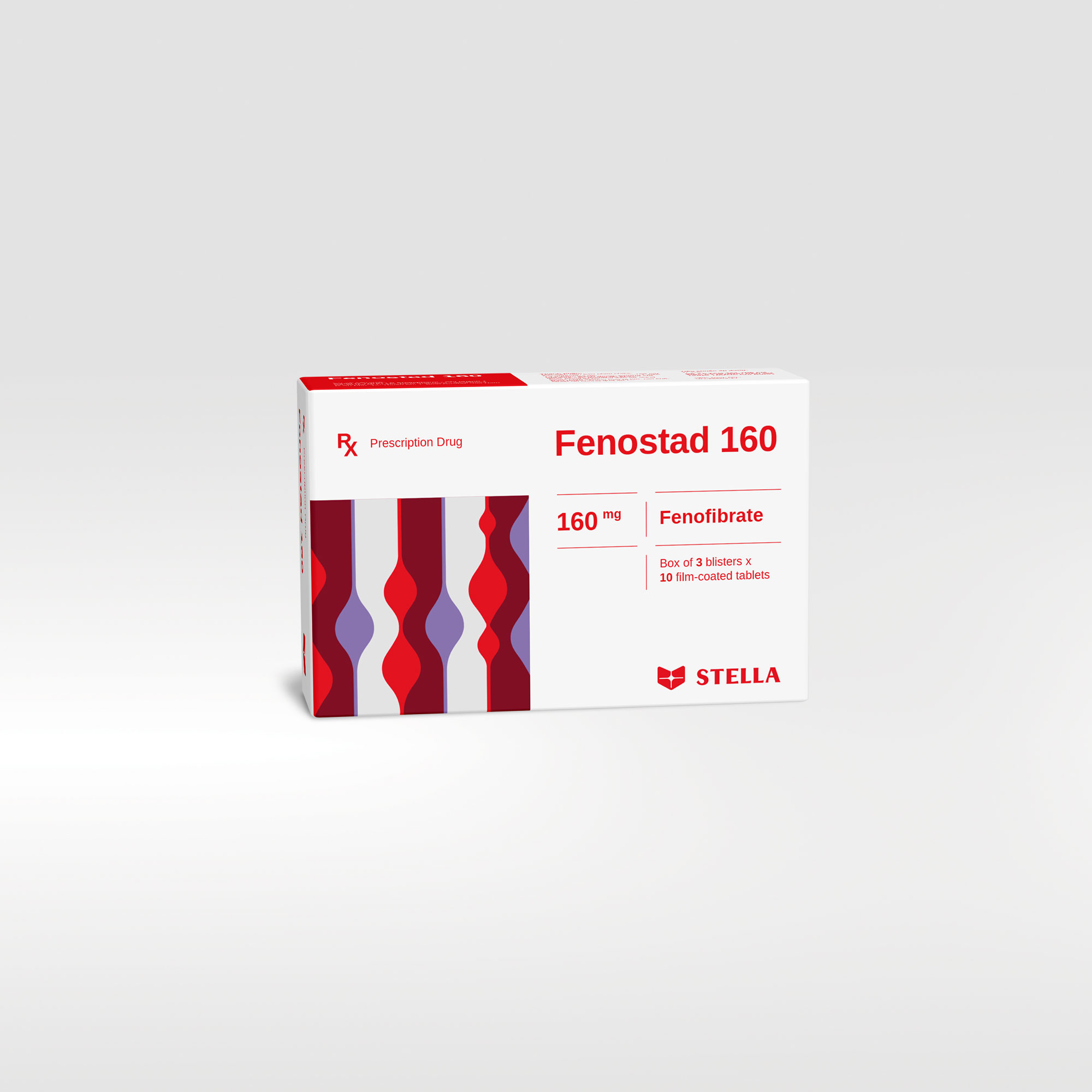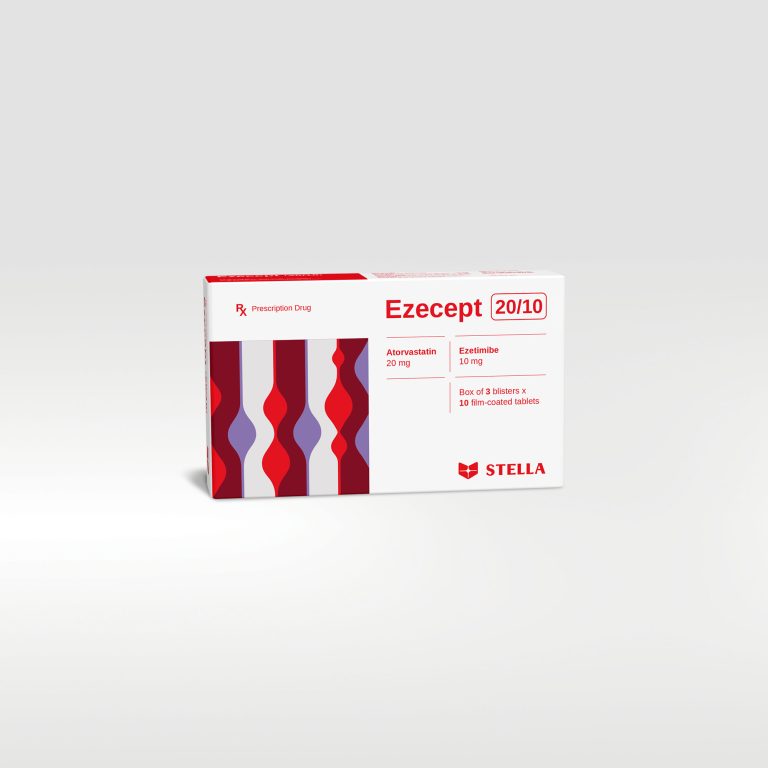Fenostad 160 Rx
Fenofibrate, a fibric acid derivative, is a hypolipidemic drug. By inhibiting the hepatic biosynthesis of cholesterol, fenofibrate reduces atherogenic fractions and raises the production of HDL and reduces blood triglycerides. Thus, the repartition of plasma cholesterol is markedly ameliorated.
| Pack size | Box of 30 tablets, 100 tablets |
| Shelf-life | 48 months |
| Composition | Fenofibrate |
| Dosage forms and strengths | Film-coated tablet: 160 mg |
Product code :













